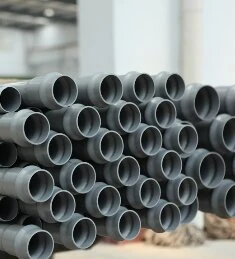Dùbh . 05, 2024 20:14 Back to list
pvc pipe for garden irrigation
PVC Pipe for Garden Irrigation The Ideal Solution
When it comes to efficiently watering your garden, PVC pipe has emerged as one of the most popular and effective solutions for irrigation systems. The use of PVC, or polyvinyl chloride, has increasingly gained traction among gardeners, landscapers, and farmers alike due to its durability, affordability, and versatility. This article explores the benefits and applications of PVC pipes in garden irrigation, ensuring your plants receive the optimal amount of water they need to flourish.
Why Choose PVC Pipes?
One of the primary reasons PVC pipes are favored for garden irrigation is their remarkable durability. Unlike metal pipes, which can corrode over time, PVC pipes are resistant to rust and deteriorating effects from various chemicals in fertilizers and soil. This corrosion resistance ensures that your irrigation system remains efficient and effective for years to come, making it a wise long-term investment for gardeners.
Moreover, PVC pipes are lightweight compared to traditional piping materials, making them easy to handle during installation. This feature is particularly beneficial when setting up a large irrigation system, as it reduces physical strain and simplifies transportation. Despite being lightweight, PVC pipes are strong and have good pressure resistance, ensuring that they can handle the flow of water without risk of bursting.
Cost-Effective Solution
Another compelling aspect of using PVC pipes for garden irrigation is their cost-effectiveness. PVC pipes are generally less expensive than other materials, such as copper or galvanized steel, yet they offer comparable performance. This affordability makes PVC the preferred choice for both small-scale urban gardens and large agricultural setups.
Additionally, the installation of PVC piping systems can be done with minimal tools and expertise. Many gardeners opt to take on the installation as a DIY project, further reducing costs associated with hiring professionals. With the right connector pieces and equipment, setting up an irrigation system can be straightforward and rewarding.
pvc pipe for garden irrigation

Versatile Applications
PVC pipes can be used in various irrigation systems, including drip irrigation, overhead watering, and sprinkler systems. In drip irrigation, for instance, PVC pipes can be utilized to connect main water lines to smaller drip tubes, delivering water directly to the plant roots. This method minimizes water waste and ensures that moisture reaches where it is needed most, promoting healthy plant growth.
In addition to traditional garden settings, PVC pipes are also effective in agricultural applications. Farmers can use large-diameter PVC pipes to transport water from a central source to different areas of their fields, ensuring that every crop receives sufficient hydration. The flexibility to adapt piping layouts according to the terrain makes PVC pipes an indispensable tool for modern farming practices.
Environmentally Friendly Choice
As environmental awareness grows, gardeners are becoming increasingly conscious of their choices regarding sustainable practices. PVC pipes are recyclable and can be repurposed at the end of their life cycle, reducing plastic waste and promoting a more sustainable approach to gardening. Additionally, the efficient use of water through PVC irrigation systems helps conserve this precious resource, making it a responsible choice for eco-conscious gardeners.
Conclusion
In conclusion, PVC pipes are an excellent choice for garden irrigation, offering durability, cost-effectiveness, versatility, and environmental benefits. Whether you are a hobbyist gardener or a professional farmer, investing in a PVC irrigation system can significantly enhance your watering efficiency and promote healthier plants. By incorporating PVC piping into your gardening practices, you ensure that your plants receive the proper hydration they need to thrive in various environmental conditions. So, consider making the switch to PVC pipes for your irrigation needs and watch your garden flourish.
-
Durable HDPE Sheet | Versatile & Impact-Resistant Plastic
NewsAug.13,2025
-
Premium PVC Soft Sheets: Clear, Flexible & Durable
NewsAug.12,2025
-
Premium PVC Round Rods: Durable, Chemical Resistant, Easy to Machine
NewsAug.11,2025
-
PP U-channel: Chemical-Resistant, Lightweight & Durable
NewsAug.10,2025
-
Transparent PVC Pipe: Clear Flexible Tubing for Fluids
NewsAug.09,2025
-
Durable PP Rigid Sheet: Versatile & High-Quality Plastic Panels
NewsAug.08,2025

